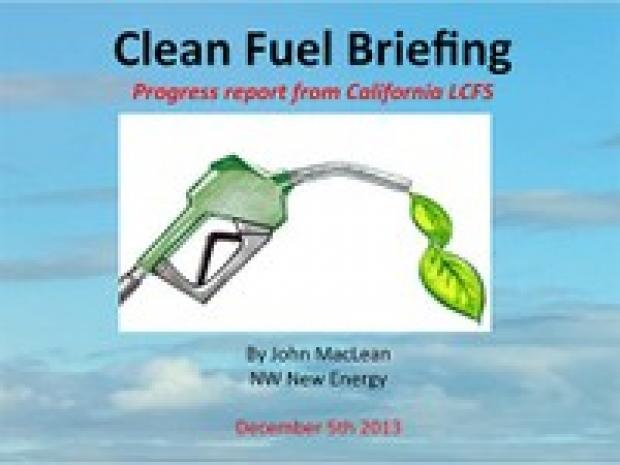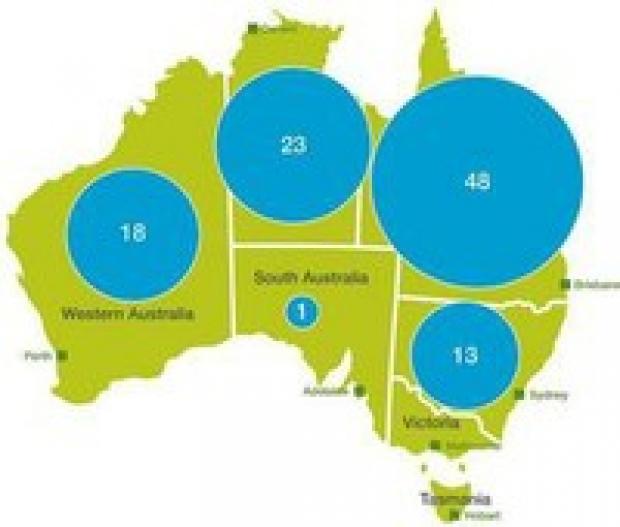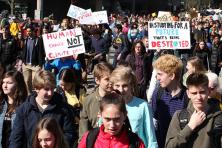2013 was a year of significant progress for sustainable advanced fuels in Washington State, across the West Coast, and around the world. Climate Solutions’ Sustainable Advanced Fuels program (SAF) is excited to play a key role in these developments.
In the short time since we formally launched our SAF program, we have had the opportunity to drive good policy and increase understanding of the opportunities, needs and specific actions required to support sustainable fuels in our region and around the world. I wanted to take this chance to highlight some of the milestones. I also wanted to say so long for now (I am about to go on sabbatical – more details at the end!).
Homegrown energy, good jobs and economic development: the Clean Fuels Standard
To bring sustainable advanced fuels to scale and level the playing field with the fossil-fuel industry, we will need good policy. With many partners in business, government and other non-profits, we are working to establish a Clean Fuels standard in Washington and keep the existing standard on the books in Oregon.

We held a briefing on the Clean Fuels Standard at Seattle City Hall on December 6. We brought together more than 60 leaders to hear from John Maclean of NW New Energy in Washington, Ryan Lamberg of Pacific Northwest Biodiesel Initiative in California and Ian Thomson of Waterfall Group in British Columbia. The presenters laid out the benefits of a Clean Fuel Standard in reducing greenhouse gas emissions and in spurring job creation and economic development.
Since the California Low Carbon Fuel Standard began in 2011, over 2 billion gallons of gasoline and 77 million gallons of diesel have been displaced. This is the equivalent of removing 2.8 million metric tons of carbon from the atmosphere or taking 500,000 cars off the road. The evidence also shows that that economic growth and prices at the pump haven’t been affected by Clean Fuels Standards. You can read more about this in our post A Clean Fuels Standard Works, which includes links to all three presentations.
We have also been bringing business and community leaders together to publicly support good policies, such as a Clean Fuels Standard, that are needed to bring advanced biofuels up to commercial scale production. A HUGE thank you to all who joined us to testify before Governor Inslee and members of the legislature at the Climate Legislative-Executive Workgroup hearings.
In the other Washington, we have been working with government and business leaders to support keeping the federal Renewable Fuel Standard (RFS) working. Internationally, the RFS is recognized as perhaps the strongest policy supporting development of sustainable fuels. Not surprisingly, the RFS has come under strong attack from Big Oil and its allies, who are seeking to repeal it or scale it back significantly. We worked with Governor Inslee’s office to craft a strong letter urging EPA to keep its ambition high and maintain market momentum for sustainable fuels.
Want to help? There are many ways to add your voice toward a Clean Fuels Standard and other great solutions. Please contact Clark Gilman, our SAF Program Coordinator, to chat about new opportunities. clark (at) climatesolutions.org or 360-401-5489
Aviation Biofuels Work Group Report

Climate Solutions played a leadership role crafting the 2013 report of the Aviation Biofuels Work Group. This report, coordinated by Innovate Washington, was requested by the Washington Legislature in HB 2422 (2012) due to their interest in maintaining the momentum established by our Sustainable Aviation Fuels Northwest stakeholder report.
The Aviation Biofuels Work Group, composed leaders from the aviation, agriculture, forestry, fuels, academia, non-profit and other sectors, came together to recommend a number of policies and actions needed to ensure Washington leads in producing these next-generation fuels. The report urges the state to adopt policies that will build demand for advanced renewable fuels. These kinds of policies are needed to spur investment in commercial-scale aviation biofuel facilities. The most important single policy recommendation: adopt a Clean Fuels Standard in Washington. Although a Clean Fuels Standard would not directly apply to aviation fuels, the report concludes it would “catalyze development of advanced renewable fuels by providing the market needed to attract capital investment in biorefining.” The report also acknowledged that a CFS can include cost –containment provisions to ensure little or no price impacts on consumers.
International Road Mapping

Three years ago we brought together businesses, governments, universities and nonprofits to release one of the first global roadmaps for a Northwest regional supply chain to provide sustainable advanced fuels for aviation. Since that time we have had the opportunity to participate in a number of similar road mapping projects across the globe.
Most recently, we helped develop the Flightpath to Aviation Biofuels Brazil: Action Plan, which was released last summer. With the Dutch company and international renewable jet fuel leader SkyNRG, we are currently working with Singapore to develop an action plan for sustainable jet fuels.
Huge strides have been made in creating and distributing sustainable jet fuels. Since biofuels were approved for commercial use in July 2011, over 1,500 flights have safely delivered passengers fueled with a blend of biofuels and petroleum fuel. New pathways are being approved More studies considering the opportunities and challenges of bringing sustainable advanced fuels to scale continue across the globe. In particular, Aviation Biofuels Roadmap Australia provides a detailed look at the opportunities for feedstock and technology pathways which could create an Australian advanced biofuel industry.
This is just a taste of some of the big developments from this past year. Many of our partners in advanced fuels are looking to 2014 as the year where we will bring sustainable advanced fuels to scale. Thank you for your continued help in getting us there.
P.S. I will be on sabbatical for the first quarter of 2014, traveling in Patagonia with my wife Lisa. While I am gone, please stay connected with our Sustainable Advanced Fuels program and Climate Solutions by contacting our SAF Program Coordinator Clark Gilman, clark (at)climatesolutions.org, or our Director for Strategic Innovation, Eileen Quigley, Eileen(at)climatesolutions.org. Look forward to catching up with you when I am back!



